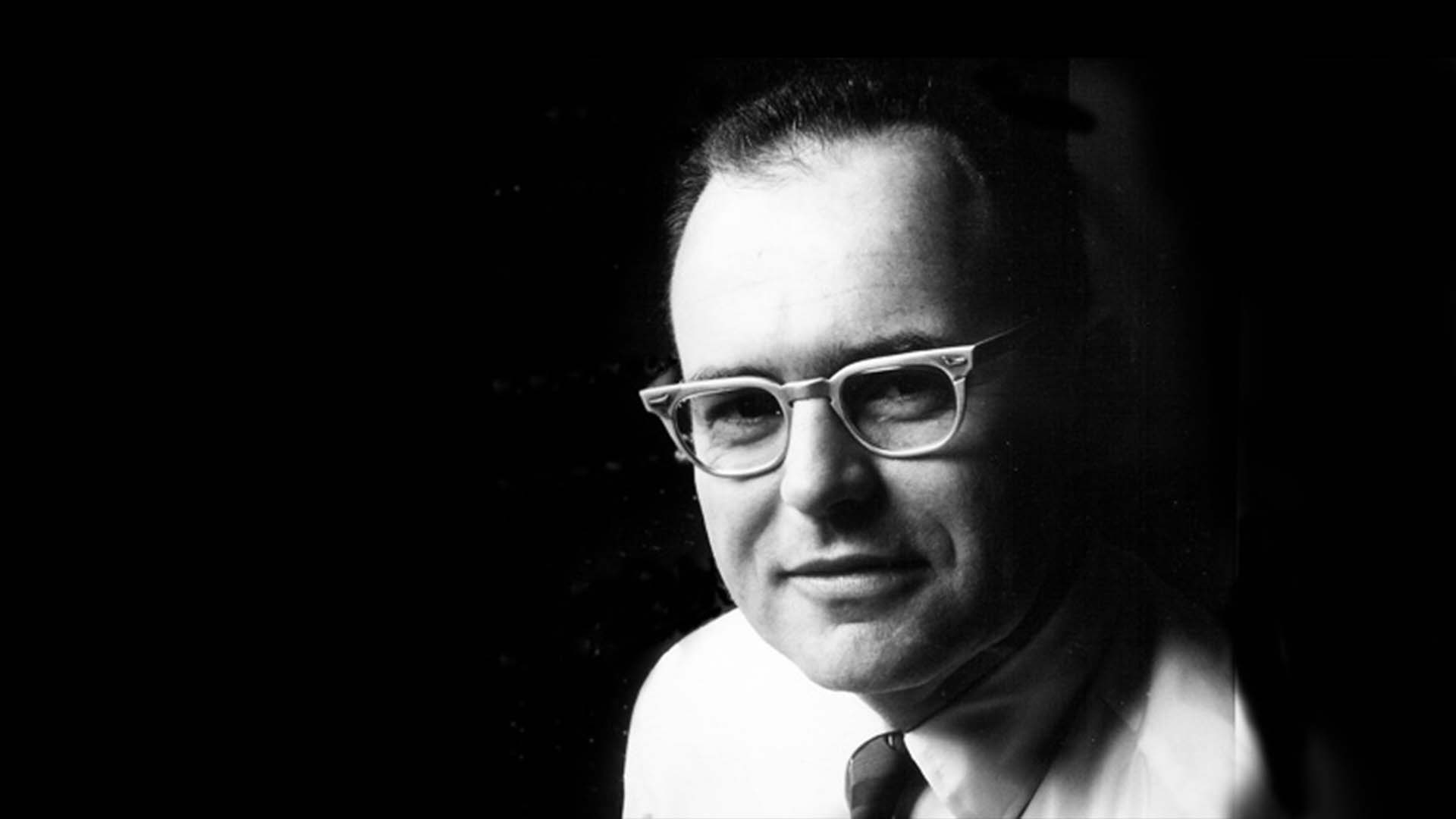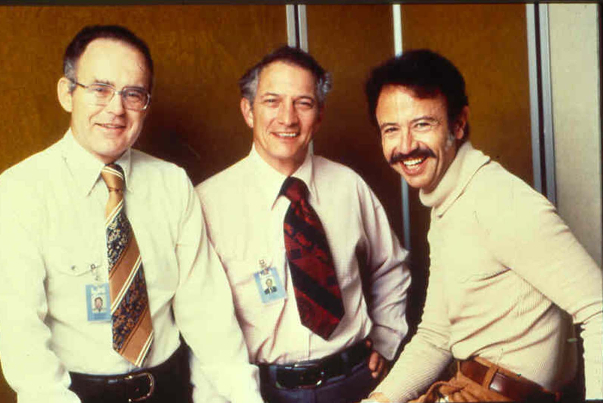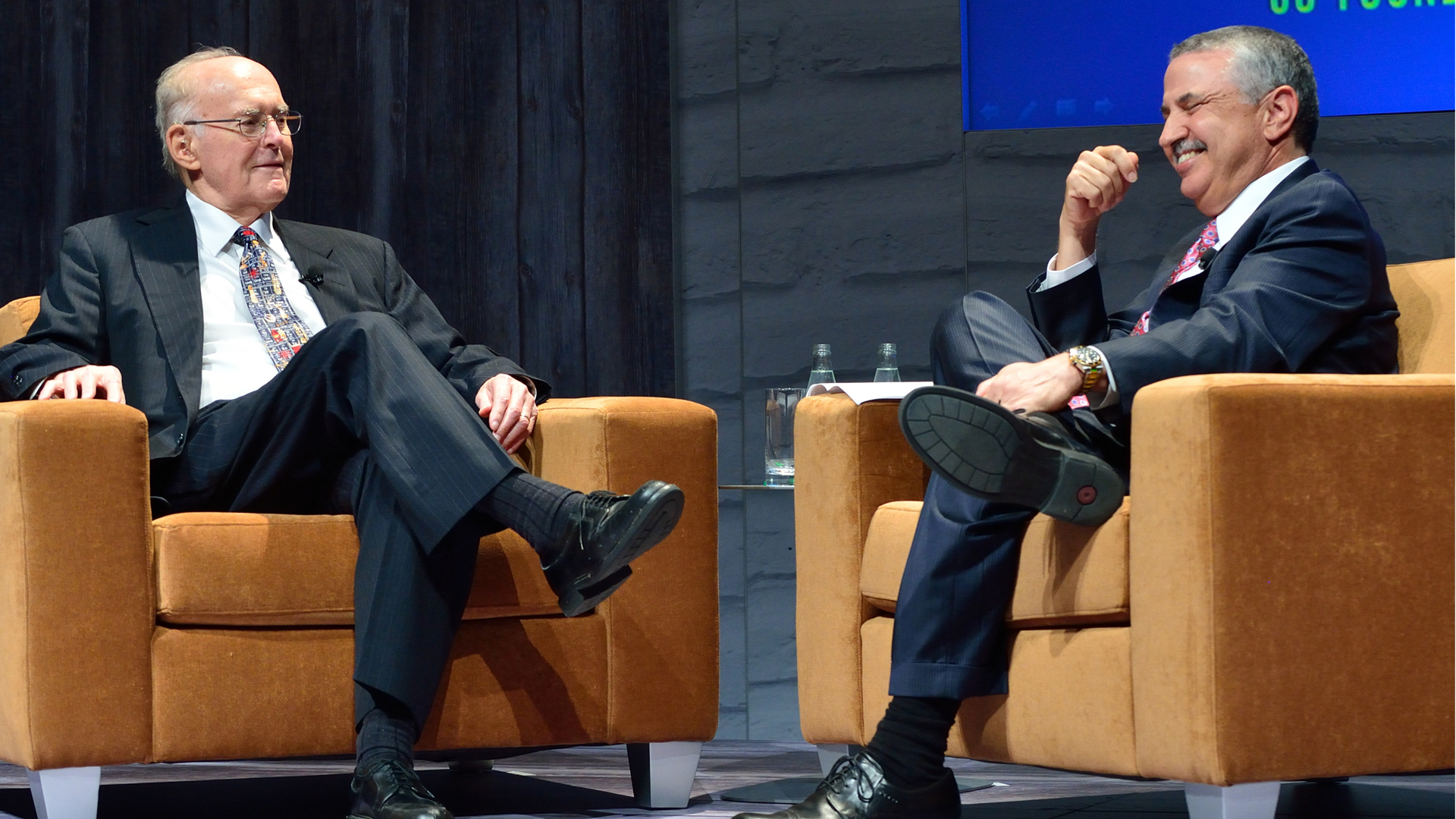Gordon Moore, a pioneering Silicon Valley scientist and leading philanthropist, died on Friday, March 24, at his home in Hawaii, Intel Corporation and the Gordon and Betty Moore Foundation jointly announced. He was 94.
The co-founder of Fairchild Semiconductor and Intel, Moore's seminal contributions to the early technology industry included helping to create and manufacture silicon transistors and then produce a complete circuit of planar transistors on a single piece of silicon, the world's first microchip.
During his lifetime, he was hailed by colleagues as a brilliant scientist, an astute businessman and a visionary. Famously, his prediction in 1965 about the speed of technological progress — that the number of transistors on a microchip would double every year — proved accurate and became known as Moore's Law. (The timeframe later was recast as every two years and then as every 18 months.) The idea of chip technology growing at an exponential rate, continually making electronics faster, smaller and cheaper, became the driving force behind the semiconductor industry and paved the way for the ubiquitous use of chips in millions of everyday products, according to the Intel press release.
“All I was trying to do was get that message across, that by putting more and more stuff on a chip we were going to make all electronics cheaper,” Moore said in a 2008 interview.
Gordon Earle Moore was born in San Francisco on Jan. 3, 1929, to Walter Harold and Florence Almira “Mira” (Williamson) Moore. Moore was educated at San Jose State University, the University of California at Berkeley, and the California Institute of Technology, where he was awarded his doctorate in chemistry in 1954, according to Intel.
He started his research career at the Johns Hopkins Applied Physics Laboratory in Maryland. He returned to California in 1956 to join Shockley Semiconductor in Palo Alto, which was the first semiconductor company established in what would become Silicon Valley.
In 1957, Moore co-founded Fairchild Semiconductor, a division of Fairchild Camera and Instrument, along with Robert Noyce and six other colleagues from Shockley Semiconductor.
Moore and Noyce played central roles in the first commercial production of diffused silicon transistors and later the world’s first commercially viable integrated circuits, according to Intel.
In 1968, Moore and Noyce co-founded Intel and hired future Intel CEO Andy Grove as the third employee, and the three of them built Intel into one of the world’s great companies. Together they became known as the “Intel Trinity,” the Intel press release stated.
With Fairchild and Intel came financial success, which enabled Moore, together with his wife, Betty, to become a titan in another field: philanthropy. Beginning with individual gifts, many of them anonymous, then forming the Moore Family Foundation, and eventually, in 2000, creating the Gordon and Betty Moore Foundation in Palo Alto, the Moores sought through philanthropy to make the world a better place for future generations. The foundation has donated more than $5.1 billion to charitable causes, focusing in particular on environmental conservation, science and patient care improvements, the press release stated.
The Moores made a gift of $50 million to Lucile Packard Children's Hospital Stanford in 2017, the largest received since the hospital's founding, to support patient care and advance research for children with heart disease, after one of their grandchildren received care there.
Also in 2017, the Moores were awarded the Palo Alto Tall Tree Global Impact Award for their charitable giving. (Watch Moore's acceptance speech).
A childhood in Pescadero
Moore's local roots ran deep. A fifth generation Californian, he was the son of a chief deputy sheriff and grew up in Pescadero, along the San Mateo County coast, which had been home to his family since the mid-19th century, according to a memorial posted on the Gordon and Betty Moore Foundation website.
He loved to fish in his neighborhood creek and to experiment with chemicals and “make explosives on a small production basis” behind the house, the foundation obituary stated. From an early age, he had a passion for the natural world, science and experimentation, and he pursued that with a bright inquisitiveness, appreciation and sense of gratitude that would last a lifetime and become guideposts for his philanthropy.
Fishing and exploring Pescadero’s untrammeled wilds as a child and venturing to Baja and Costa Rica and even farther afield in later years offered a baseline that illustrated environmental changes brought by development and mass tourism, too often not for the better, the foundation stated.
Always an acute observer, this helped instill in Moore a concern and abiding interest in conserving nature for future generations, in the Bay Area and around the world.
“We see the wild places of only decades ago being changed to golf courses and resort hotels, and do not think that the whole world should go that way,” he told the Chronicle of Philanthropy in 2002. “I hope we will really make a difference, long term (i.e., 10,000 years).”
Among the Moores' more recent local conservation efforts, in 2018, they gave $3 million to the nonprofit Save the Redwoods League to help acquire the 730-acre Harold Richardson Redwoods Reserve on the Sonoma Coast.
Leadership combined with humility
Moore received the National Medal of Technology from President George H.W. Bush in 1990, and the Presidential Medal of Freedom, the nation’s highest civilian honor, from President George W. Bush in 2002.
“Gordon Moore defined the technology industry through his insight and vision. He was instrumental in revealing the power of transistors and inspired technologists and entrepreneurs across the decades," Pat Gelsinger, Intel CEO, said in the company's press release. "My career and much of my life took shape within the possibilities fueled by Gordon’s leadership at the helm of Intel.”
Frank D. Yeary, chairman of Intel’s board of directors, said, “Gordon was a brilliant scientist and one of America’s leading entrepreneurs and business leaders. It is impossible to imagine the world we live in today, with computing so essential to our lives, without the contributions of Gordon Moore.”
“Those of us who have met and worked with Gordon will forever be inspired by his wisdom, humility and generosity,” reflected foundation president Harvey Fineberg. “Though he never aspired to be a household name, Gordon’s vision and his life’s work enabled the phenomenal innovation and technological developments that shape our everyday lives. Yet those historic achievements are only part of his legacy. His and Betty’s generosity as philanthropists will shape the world for generations to come.”
After retiring from Intel in 2006, Moore divided his time between California and Hawaii, serving as chairman of the board for the Gordon and Betty Moore Foundation until transitioning to chairman emeritus in 2018.
Moore married Betty Irene Whitaker, who survives him, in 1950. He is also survived by sons Kenneth and Steven and four grandchildren.
• Read the memorial posted on the Gordon and Betty Moore Foundation website.





Comments